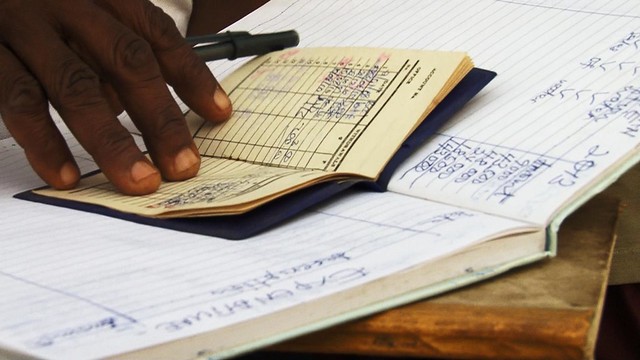Join a 3-week RWSN e-discussion on the costs, financing and affordability of rural water supply and sanitation for the most vulnerable populations.
Published on: 21/05/2019

Monitoring in Ghana. Photo: IRC
From 27 May to 16 June, RWSN is organising a 3-week e-discussion on "Cost effective ways to leave no-one behind", facilitated by Guy Hutton (UNICEF), Louisa Gosling (WaterAid), Marieke Adank (IRC), Julia Boulenouar (AguaConsult) and Sean Furey (RWSN). The first week examines the cost components of rural water supply and sanitation, focusing on those which tend to be forgotten and thus threaten service quality or sustainability. The second week discusses the financing of these costs, including the main current funding sources and which ones have greater potential in the future. The final week zeroes in on one of the key issues, or constraints, in the sector, namely that of affordability: the challenge being to make maximum use of limited public subsidies to reach the most vulnerable populations.
The e-discussion was preceded by a webinar on "Planning and Financing for Universal Access" on 21 May. The webinar presented case studies and analytical work that illustrates how different stakeholders come together in supporting national and local/regional governments develop comprehensive plans for achieving universal access to safely manage services. And how under such long-term plans, different financing sources are leveraged to cover life-cycle costs (meaning CapEx, OpEx, CapManex, Indirect Support). The webinar explored how governments leverage user contributions through tariffs, or other contribution mechanisms and how it brings different domestic sources and donor sources together in a coherent and strategic planning framework, including private/commercial finance, such as through commercial (or blended) loans or private equity of private operators, while different management models are being pursued under the plans.
To join the e-discussion you first need to register at the new RWSN e-discussion group